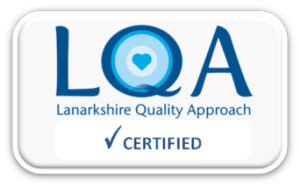Food sources of Vitamins and Minerals
Information for patients
NHS Lanarkshire Nutrition and Dietetics
PIL.FODSRC.21_12986.L
Food sources of vitamins and minerals
A healthy, varied and balanced diet gives us the vitamins and minerals needed for health. If your child’s diet is limited, it makes it more difficult to make sure they get all their vitamins and minerals. For example, some children may only choose to eat food of one texture, or one colour. This leaflet gives some ideas of food with different vitamins and minerals which can help you in choosing foods to meet your child’s vitamin and mineral needs. Food sources alone are not able to give us the amount of vitamin D we need. Please be aware, free vitamin D supplements are available in Lanarkshire for:
- All pregnant women
- Breast feeding mums
- All mums in the 1 year post natal period
- All children up to the age of 3 years (please note these are not required if a baby is taking more than 500mls of formula milk).
You can pick these up from many distribution points throughout Lanarkshire including Health centre receptions. Please ask your health visitor or midwife for more information.

Vitamin/mineral A
Where to find:
- Milk and dairy products
- Eggs
- Oily fish
- Liver
- Yellow, red & green vegetables
- Yellow fruit (mango)
Vitamin/mineral B1(Thiamine)
Where to find:
- Peas
- Fresh & dried fruit
- Eggs
- Wholegrain bread
- Fortified breakfast cereal
- Liver
Vitamin/mineral B2 (Riboflavin)
Where to find:
- Milk and dairy products
- Eggs
- Fortified breakfast cereals
- Brown rice
Vitamin/mineral B3 (Niacin)
Where to find:
- Meat
- Fish
- Wheat flour
- Eggs
- Milk and dairy products
Vitamin/mineral Pantothenic acid (B5)
Where to find:
- Chicken
- Beef
- Potatoes
- Porridge
- Tomatoes
- Kidney
- Eggs
- Broccoli
- Wholegrains
Vitamin/mineral B6 (Pyridoxine)
Where to find:
- Pork
- Chicken
- Fish
- Bread
- Eggs
- Vegetables
- Soya beans
- Milk and dairy products
- Potatoes
Vitamin/mineral Biotin (B7)
Where to find:
- Egg yolk
- Nuts
- Fortified breakfast cereals
- Bread
- Soybeans
- Liver
- Kidney
Vitamin/mineral B12
Where to find:
- Meat
- Salmon
- Cod
- Milk and dairy products
- Cheese
- Eggs
- Fortified breakfast cereals
Vitamin/mineral C
Where to find:
- Oranges and orange juice
- Red & green peppers
- Strawberries
- Blackcurrants
- Green leafy vegetables e.g. kale/spinach/cabbage/brocolli
- Brussel sprouts
- Potatoes
Vitamin/mineral D
Where to find:
- Sunlight
- Oily fish
- Egg yolk
- Meats
- Fortified spreads
Vitamin/mineral E
Where to find:
- Plant oils – such as soya, corn & olive oil
- Nuts and seeds
- Fortified breakfast cereals
Vitamin/mineral K
Where to find:
- Green leafy vegetables e.g. kale/spinach/cabbage/brocolli
- Vegetable oils
- Fortified breakfast cereals
Vitamin/mineral Iron
Where to find:
- All meat
- Fish
- Egg yolk
- Beans & lentils
- Fortified breakfast cereals
- Nuts, nut butters & seeds
- Dried fruit
- Green leafy vegetables e.g. kale/spinach/cabbage/brocolli
Vitamin/mineral Magnesium
Where to find:
- Green leafy vegetables e.g. kale/spinach/cabbage/brocolli
- Nuts
- Brown rice
- Bread (especially wholegrain)
- Fish
- Meat
- Milk and dairy products
Vitamin/mineral Calcium
Where to find:
- Milk and dairy products
- Calcium enriched milk alternatives
- Sardines
- Fortified bread & cereal
- Green leafy vegetables e.g. kale/spinach/cabbage/brocolli
Vitamin/mineral Folic Acid
Where to find:
- Green leafy vegetables e.g. kale/spinach/cabbage/brocolli
- Beans
- Oranges
- Wholegrain foods such as wholemeal bread and whole oats
- Chicken
- Fortified breakfast cereal
Vitamin/mineral Iodine
Where to find:
- Fish
- Shellfish
- Milk and dairy products
Vitamin/mineral Chromium
Where to find:
- Meat
- Whole grains – such as wholemeal bread and whole oats
- Lentils
- Green leafy vegetables e.g. kale/spinach/cabbage/broccoli
- Potatoes
- Spices
Vitamin/mineral Copper
Where to find:
- Nuts
- Shellfish
- Offal
Vitamin/mineral Manganese
Where to find:
- Bread
- Nuts
- Fortified breakfast cereals
- Peas & runner beans
Vitamin/mineral Molybdenum
Where to find:
- Nuts
- Tinned vegetables
- Cereals – such as oats
- Peas
- Green leafy vegetables e.g. kale/spinach/cabbage/brocolli
- Cauliflower
Vitamin/mineral Phosphorus
Where to find:
- Red meat
- Milk and dairy products
- Fish
- Chicken
- Bread
- Brown rice
- Oats
Vitamin/mineral Potassium
Where to find:
- Fruit – such as bananas
- some vegetables – such as broccoli, parsnips & brussels sprouts
- Pulses
- Nuts & seeds
- Fish
- Shellfish
- Beef
- Chicken
- Turkey
Vitamin/mineral Selenium
Where to find:
- Brazil nuts
- Fish
- Meat
- Eggs
Vitamin/mineral Zinc
Where to find:
- Meat
- Shellfish
- Milk and dairy products
- Bread
- Fortified breakfast cereals
If you need this information in another language or format, please e-mail:





